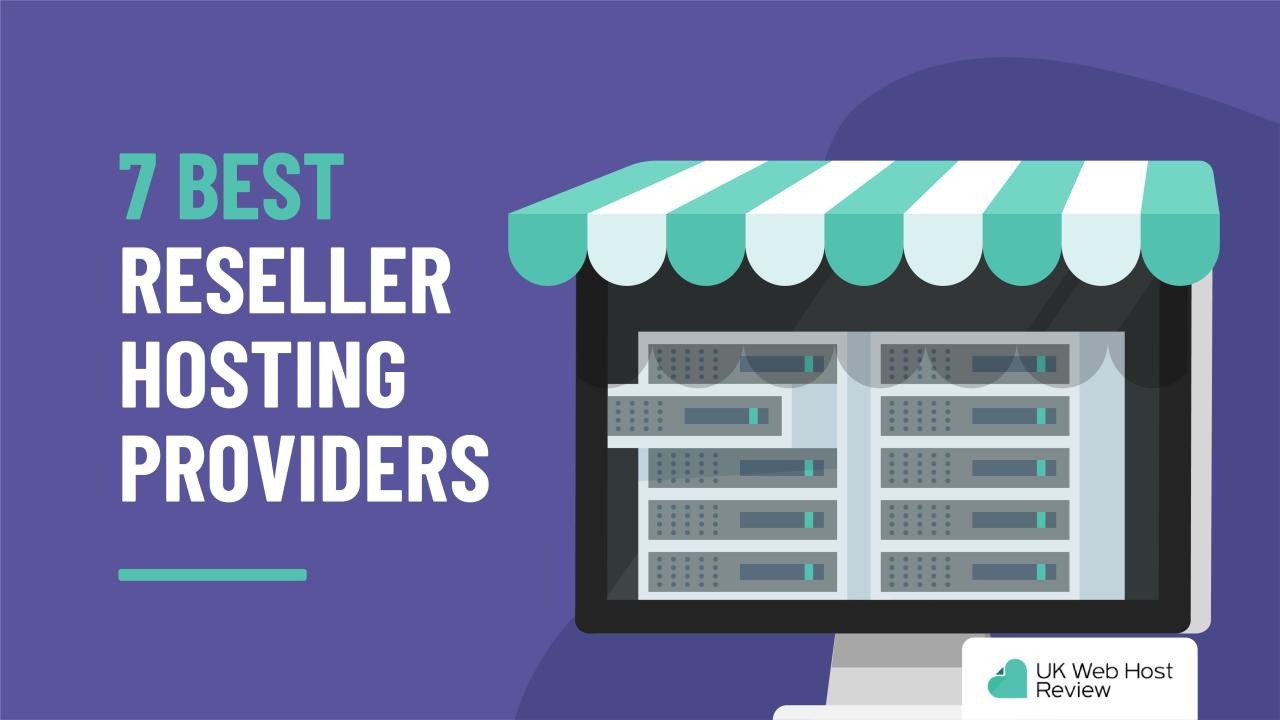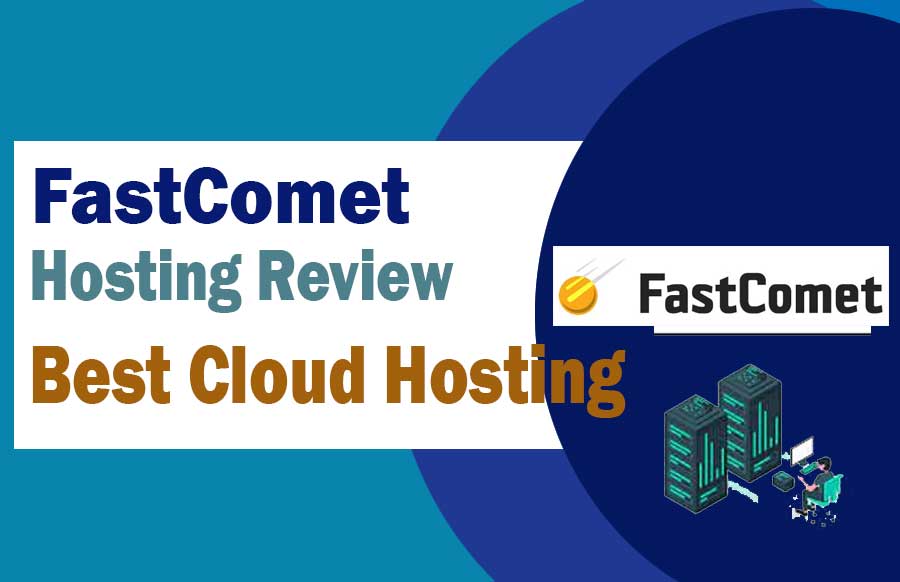Reseller webhosting takes center stage as a powerful solution for businesses looking to expand their offerings or generate revenue. This approach empowers individuals and organizations to act as intermediaries, providing web hosting services to clients under their own brand. Reseller webhosting bridges the gap between shared hosting, which offers limited resources, and dedicated hosting, which requires significant upfront investment.
This model caters to a diverse audience, including web designers, agencies, and online retailers seeking to offer web hosting as a value-added service. By leveraging reseller hosting, businesses can tap into a new revenue stream, enhance their service offerings, and build a loyal customer base.
What is Reseller Web Hosting?
Reseller web hosting is a type of web hosting where you purchase a large amount of web space and bandwidth from a hosting provider and then resell it to your own clients. You essentially become a mini-hosting company, offering web hosting services under your own brand.
Reseller web hosting provides a way for individuals or businesses to enter the web hosting market without the need for extensive infrastructure or technical expertise. You can start your own hosting business with a relatively low initial investment and manage your client accounts through a user-friendly control panel provided by your hosting provider.
Comparison with Other Hosting Types
Reseller hosting occupies a middle ground between shared and dedicated hosting, offering advantages of both.
- Shared Hosting: In shared hosting, multiple websites share the same server resources. This is the most affordable option but offers limited control and performance.
- Dedicated Hosting: Dedicated hosting provides an entire server for your website, offering maximum control and performance. However, it’s the most expensive option.
- Reseller Hosting: Reseller hosting offers a balance between shared and dedicated hosting. You have more control and resources than shared hosting, but it’s less expensive than dedicated hosting. You can customize your hosting plans and offer different levels of service to your clients.
Target Audience for Reseller Hosting
Reseller hosting is ideal for:
- Web Developers and Designers: They can offer web hosting services to their clients as part of their overall package.
- Small Businesses: They can start their own hosting business with minimal investment and expand their service offerings.
- Individuals: They can earn extra income by reselling web hosting services.
- Marketing Agencies: They can provide web hosting services to their clients as part of their marketing packages.
Benefits of Reseller Web Hosting: Reseller Webhosting

Reseller web hosting offers a multitude of advantages for businesses, making it an attractive option for those looking to expand their offerings or generate additional revenue streams. It provides the tools and resources needed to create and manage websites, while also allowing for the development of a successful web hosting business.
Advantages for Businesses
Reseller web hosting empowers businesses to offer website hosting services to their clients, expanding their service portfolio and creating new revenue opportunities. Here are some key advantages:
- Increased Revenue Streams: Reseller hosting allows businesses to sell web hosting packages to clients, generating a consistent revenue stream. This can be particularly beneficial for businesses that already provide services like web design or digital marketing, as it allows them to offer a complete solution to their clients.
- Brand Building and Customer Loyalty: Offering web hosting services strengthens your brand image as a reliable and comprehensive service provider. It also fosters customer loyalty, as you can provide a seamless and integrated solution for their website needs.
- Scalability and Flexibility: Reseller hosting provides the flexibility to scale your business as your client base grows. You can easily adjust your hosting packages and resources to meet the evolving demands of your clients.
- Cost-Effectiveness: Reseller hosting can be more cost-effective than setting up your own web hosting infrastructure. You can leverage the resources and expertise of your hosting provider while focusing on your core business operations.
Generating Revenue with Reseller Hosting
Reseller web hosting presents several avenues for generating revenue. Businesses can utilize reseller hosting to:
- Sell Hosting Packages: Offer different web hosting plans with varying features and resources, catering to different client needs and budgets.
- Offer Value-Added Services: Expand your offerings beyond basic hosting by providing additional services like domain registration, website design, SSL certificates, and email marketing.
- Create White-Label Solutions: Offer your own branded web hosting services, giving your business a unique identity and enhancing your brand image.
- Develop Managed Hosting Packages: Provide comprehensive website management services, including backups, security updates, and technical support, to attract clients who value a hassle-free experience.
Benefits for Website Development and Management
Reseller hosting offers a range of benefits for website development and management, empowering businesses to deliver high-quality services to their clients.
- Control and Customization: Reseller hosting provides a high level of control over your hosting environment, allowing you to customize settings and features to meet your specific needs.
- Resource Management: You can allocate resources, such as disk space, bandwidth, and CPU power, to different clients based on their website requirements.
- Simplified Management: Reseller hosting provides tools and interfaces for managing multiple client accounts, simplifying the process of provisioning, monitoring, and supporting websites.
- Scalability and Flexibility: You can easily scale your hosting resources to accommodate growth in traffic and website complexity.
- Cost-Effectiveness: Reseller hosting allows you to optimize your hosting costs by purchasing resources in bulk and distributing them to clients.
Features of Reseller Web Hosting Packages
Reseller web hosting packages come with a variety of features that enable you to offer web hosting services to your clients. These features can be categorized into several key areas, including server resources, control panel access, and security features.
Server Resources
Server resources are the foundation of your reseller web hosting business. They determine the performance and stability of your clients’ websites. Here’s a breakdown of common server resources included in reseller hosting packages:
- Disk Space: This refers to the amount of storage space allocated to your reseller account. It determines how much data your clients can store on their websites, including files, databases, and emails.
- Bandwidth: Bandwidth represents the amount of data that can be transferred to and from your server within a given time period. It’s crucial for website performance, especially for websites with high traffic volumes.
- CPU Cores: CPU cores are the processing units that handle website requests. More cores mean faster processing speeds and better website performance, especially for websites with resource-intensive tasks.
- RAM: Random Access Memory (RAM) is used by the server to store temporary data, allowing websites to load faster and respond quickly to user requests. More RAM improves website performance, especially for websites with high traffic or complex applications.
Control Panel Access
A control panel provides you with the tools to manage your reseller hosting account and your clients’ websites. Popular control panels used in reseller web hosting include:
- cPanel: A widely used and user-friendly control panel that offers a range of features for managing websites, including domain management, email accounts, file management, and website security.
- WHM (Web Host Manager): This is the administrative interface of cPanel, allowing you to manage multiple cPanel accounts, create new accounts, and configure server settings.
- Plesk: Another popular control panel that offers a user-friendly interface for managing websites and server settings. It includes features for managing domains, email accounts, databases, and security settings.
Security Features
Security is paramount for any web hosting provider. Reseller hosting packages typically include essential security features to protect your clients’ websites:
- Anti-Virus and Malware Protection: Reseller hosting providers usually offer anti-virus and malware protection to scan websites for malicious code and prevent infections.
- Firewall: A firewall acts as a barrier between your server and the internet, blocking unauthorized access and preventing malicious attacks.
- SSL Certificates: SSL certificates are used to encrypt data transmitted between websites and users, ensuring secure communication and protecting sensitive information.
- Spam Filtering: Spam filters are used to block unwanted emails from reaching your clients’ inboxes, protecting them from spam and phishing attempts.
Reseller Hosting Packages Comparison
Here’s a comparison table showcasing typical features and pricing for different reseller hosting packages:
| Package | Disk Space | Bandwidth | CPU Cores | RAM | Control Panel | Security Features | Price |
|---|---|---|---|---|---|---|---|
| Basic | 50 GB | 1 TB | 1 | 1 GB | cPanel | Anti-Virus, Firewall | $20/month |
| Standard | 100 GB | 2 TB | 2 | 2 GB | cPanel, WHM | Anti-Virus, Firewall, SSL Certificates | $40/month |
| Advanced | 200 GB | 5 TB | 4 | 4 GB | cPanel, WHM, Plesk | Anti-Virus, Firewall, SSL Certificates, Spam Filtering | $80/month |
Choosing the Right Reseller Hosting Provider
Selecting the right reseller hosting provider is crucial for the success of your web hosting business. You need a provider that offers reliable services, excellent performance, and robust support.
Evaluating Key Factors
When choosing a reseller hosting provider, several key factors should be carefully considered.
- Reliability and Uptime: Look for a provider with a proven track record of high uptime and reliability. Check their service level agreements (SLAs) to understand their uptime guarantees and any penalties for downtime.
- Performance and Speed: Fast loading times are essential for a positive user experience. Evaluate the provider’s server infrastructure, including processor speed, RAM, and storage capacity.
- Scalability and Flexibility: Choose a provider that offers scalable solutions to accommodate your future growth. Look for flexible plans that allow you to easily upgrade or downgrade your resources as needed.
- Features and Resources: Ensure the provider offers the features and resources you need to support your clients. This includes features like cPanel/WHM, website builder tools, email accounts, and security measures.
- Pricing and Value: Compare pricing plans and features across different providers to find the best value for your money. Consider factors like monthly fees, setup costs, and additional services.
- Customer Support and Technical Assistance: Reliable customer support is essential for resolving issues quickly and efficiently. Evaluate the provider’s support channels, response times, and availability.
Assessing Reliability and Performance
Several factors can help you assess the reliability and performance of a reseller hosting provider.
- Customer Reviews and Testimonials: Read independent reviews and testimonials from existing customers to gain insights into their experiences with the provider. Websites like Trustpilot and G2 Crowd can be helpful resources.
- Uptime Monitoring Tools: Utilize uptime monitoring tools like UptimeRobot or Pingdom to track the provider’s server uptime and performance.
- Server Infrastructure and Technology: Inquire about the provider’s server infrastructure, including data centers, hardware specifications, and network connectivity. Look for providers that use modern technologies and robust security measures.
Importance of Customer Support
Excellent customer support is critical for a successful reseller hosting business.
- Responsive and Efficient Support: Choose a provider that offers responsive and efficient support channels, such as live chat, email, and phone.
- Technical Expertise: Ensure the support team has the technical expertise to resolve complex issues and provide helpful guidance.
- Proactive Support: Look for providers that offer proactive support, such as regular security updates, server maintenance, and performance optimization.
Setting Up and Managing a Reseller Web Hosting Account
Setting up and managing a reseller web hosting account involves a series of steps, from choosing a provider and configuring your account to managing client websites and billing. The process is relatively straightforward, but it requires some technical understanding and attention to detail.
Steps Involved in Setting Up a Reseller Web Hosting Account
Before you can start selling web hosting services, you need to set up your reseller account. This involves selecting a reputable provider, choosing a suitable plan, and configuring your account.
- Choose a Reseller Hosting Provider: The first step is to select a reliable reseller hosting provider. Consider factors such as pricing, features, customer support, and reputation. Research different providers and compare their offerings to find the best fit for your needs.
- Select a Reseller Hosting Plan: Once you’ve chosen a provider, you need to select a reseller hosting plan. These plans typically offer different levels of resources, such as disk space, bandwidth, and the number of websites you can host. Choose a plan that aligns with your anticipated client needs and your budget.
- Configure Your Reseller Account: After signing up, you’ll need to configure your reseller account. This usually involves setting up your control panel, creating your own branded nameservers, and configuring your billing system. Your provider will provide instructions and support during this process.
Configuring and Managing Client Websites
Once your reseller account is set up, you can start hosting client websites. This involves creating hosting packages for your clients, setting up their accounts, and managing their websites.
- Create Hosting Packages: Offer different hosting packages based on your clients’ needs. This could include basic shared hosting, VPS hosting, or dedicated server plans. Each package should have specific resource allocations, such as disk space, bandwidth, and email accounts.
- Set Up Client Accounts: Once a client signs up for a hosting package, you need to set up their account. This usually involves creating a user account within your control panel and assigning them the appropriate resources. You may also need to configure email accounts, databases, and other services for them.
- Manage Client Websites: You’ll be responsible for managing your clients’ websites. This includes tasks such as:
- Monitoring website performance and uptime
- Providing technical support to clients
- Performing backups and security updates
- Managing DNS records
- Installing and configuring software
Creating and Managing Reseller Hosting Plans
Offering various reseller hosting plans is crucial to attract different clients and cater to their specific needs. Here’s a step-by-step guide for creating and managing these plans:
- Define Your Target Audience: Determine the types of clients you want to attract. Consider their website size, traffic volume, and technical expertise. This will help you tailor your plans to their requirements.
- Identify Key Features: Decide on the essential features you want to include in each plan. These could include disk space, bandwidth, email accounts, databases, security features, and other resources.
- Set Pricing: Determine the pricing for each plan based on the resources offered and your desired profit margin. Consider competitive pricing models and the value you provide to clients.
- Create Plan Descriptions: Write clear and concise descriptions for each plan, highlighting the key features and benefits. Use simple language that your target audience can understand.
- Monitor and Adjust Plans: Regularly review your plan offerings and make adjustments based on client feedback and market trends. This ensures you stay competitive and meet the evolving needs of your customers.
Reseller Web Hosting and Scalability

Reseller web hosting offers an unparalleled advantage for businesses looking to grow, as it provides the flexibility to scale resources seamlessly alongside increasing demands. This allows you to accommodate expanding customer bases and rising traffic volumes without the need for significant upfront investments.
Scaling Reseller Hosting Plans
Scaling your reseller hosting plan involves adjusting your resource allocation to meet the evolving needs of your clients and your business. This process typically involves increasing the amount of disk space, bandwidth, and CPU resources available to your clients.
There are several strategies you can employ to ensure smooth scalability:
- Choose a Hosting Provider with Scalable Infrastructure: Opt for a provider with a robust infrastructure that can accommodate your growth. Look for providers with a proven track record of handling large-scale traffic and resource demands.
- Utilize Automated Scaling Features: Many reseller hosting providers offer automated scaling features. These tools automatically adjust resources based on real-time traffic and usage patterns, ensuring optimal performance and resource utilization.
- Implement a Tiered Pricing Structure: Offering tiered pricing plans allows you to charge more for clients who require greater resources. This strategy provides a balance between cost and value for your clients, while also generating higher revenue for your business.
- Consider Cloud-Based Solutions: Cloud-based reseller hosting platforms provide exceptional scalability. They allow you to dynamically adjust resources on demand, ensuring that your clients always have the resources they need, without the need for manual intervention.
Examples of Reseller Hosting Supporting Business Growth, Reseller webhosting
Reseller hosting can play a pivotal role in supporting business growth in various ways:
- Expanding Customer Base: As your client base grows, reseller hosting allows you to easily accommodate new clients without impacting the performance of existing clients. You can allocate resources to each client based on their specific needs, ensuring a smooth and efficient experience.
- Launching New Products or Services: When you introduce new products or services that generate significant traffic, reseller hosting provides the flexibility to scale resources quickly. This allows you to handle the increased traffic without compromising website performance.
- Seasonal Traffic Fluctuations: Businesses often experience seasonal traffic peaks. Reseller hosting allows you to adjust your resources to handle these fluctuations without incurring unnecessary costs during off-peak seasons.
- Supporting High-Growth Startups: Startups often experience rapid growth, requiring the ability to scale resources quickly. Reseller hosting provides the necessary flexibility to support these growth spurts without the need for significant capital investment.
Reseller Web Hosting Pricing and Cost Considerations

Reseller web hosting plans offer a flexible and cost-effective way to enter the web hosting market. Understanding the pricing structure and factors influencing costs is crucial for making informed decisions. This section explores the pricing models, key cost drivers, and strategies for optimizing reseller hosting expenses.
Pricing Structures
Reseller web hosting plans are typically priced based on resource allocation and the number of websites or domains you intend to host. Common pricing models include:
- Package-based pricing: Resellers choose from pre-defined packages with specific resource limits (e.g., disk space, bandwidth, CPU cores) and a fixed monthly fee. This model offers simplicity and predictability.
- Pay-as-you-go pricing: Resellers pay only for the resources they consume, allowing for greater flexibility and potentially lower costs if usage is low. However, this model can lead to unpredictable expenses if usage fluctuates significantly.
- Hybrid pricing: Combines elements of package-based and pay-as-you-go pricing, offering a balance between flexibility and predictability. Resellers might have a base package with additional resources available for purchase as needed.
Factors Influencing Reseller Hosting Costs
Several factors influence the cost of reseller web hosting plans, including:
- Resource allocation: The amount of disk space, bandwidth, CPU cores, and other resources you require will directly impact the cost. Larger resource allocations typically translate to higher costs.
- Number of websites and domains: The more websites or domains you host, the higher the cost. Some providers charge per website or domain, while others offer flat-rate pricing based on resource limits.
- Features and functionalities: Additional features like email accounts, SSL certificates, website builders, and security tools can increase the cost. Consider the features essential for your target audience and budget.
- Provider reputation and support: Reputable providers with excellent customer support and reliable infrastructure often command higher prices. Evaluate the provider’s track record, uptime guarantees, and support options.
- Contract length and payment terms: Longer-term contracts and annual payments may offer discounts, while monthly payments may be more expensive. Analyze your budget and long-term plans to determine the best payment structure.
Optimizing Reseller Hosting Expenses
Optimizing reseller hosting expenses requires careful planning and consideration. Here are some strategies:
- Choose a provider with flexible pricing: Opt for a provider that offers pay-as-you-go or hybrid pricing models to avoid overpaying for unused resources.
- Monitor resource usage: Regularly track your resource consumption (disk space, bandwidth, CPU) to identify potential areas for optimization and prevent unnecessary costs.
- Optimize website performance: Implementing website optimization techniques like image compression, caching, and code minification can reduce resource usage and lower hosting costs.
- Negotiate pricing: Don’t hesitate to negotiate with providers, especially if you plan to sign a long-term contract or host a significant number of websites.
- Consider alternative hosting options: If your budget is tight, explore alternative hosting solutions like shared hosting or cloud hosting, which may offer more affordable options.
Future Trends in Reseller Web Hosting
The reseller web hosting market is constantly evolving, driven by technological advancements and changing user demands. As businesses increasingly rely on the internet for operations, the need for reliable and scalable web hosting solutions continues to grow. This dynamic environment presents both opportunities and challenges for reseller hosting providers.
Cloud-Based Solutions
Cloud-based reseller web hosting solutions are gaining popularity due to their flexibility, scalability, and cost-effectiveness. These solutions offer several advantages over traditional on-premises hosting, including:
- Enhanced Scalability: Cloud-based platforms allow for seamless scaling of resources, enabling providers to adjust capacity based on demand, ensuring optimal performance for clients.
- Increased Flexibility: Resellers can easily add or remove resources as needed, adapting to changing client requirements without the need for significant upfront investments.
- Reduced Costs: Cloud solutions often offer a pay-as-you-go pricing model, eliminating the need for expensive hardware and infrastructure investments.
Managed Hosting Services
Managed hosting services are becoming increasingly sought-after, as businesses seek to offload the complexities of web hosting management. Resellers who offer managed hosting services can provide clients with:
- 24/7 Support: Managed hosting providers offer dedicated technical support teams to address client issues promptly and efficiently.
- Security and Monitoring: Proactive security measures and regular system monitoring ensure the protection and uptime of client websites.
- Automated Updates and Maintenance: Managed hosting services handle software updates and system maintenance tasks, freeing clients to focus on their core business operations.
Impact of Technological Advancements
The rapid pace of technological advancements continues to reshape the reseller hosting landscape. Key trends include:
- Artificial Intelligence (AI): AI-powered tools are being integrated into web hosting platforms to automate tasks, improve security, and enhance user experience.
- Edge Computing: Edge computing brings computing resources closer to users, reducing latency and improving performance, especially for geographically dispersed clients.
- Serverless Computing: Serverless computing eliminates the need for traditional servers, allowing developers to focus on building applications without worrying about infrastructure management.
Opportunities and Challenges
The future of reseller web hosting presents both opportunities and challenges:
- Increased Competition: The reseller hosting market is becoming increasingly competitive, with new players and established providers vying for market share.
- Growing Demand for Specialized Services: As businesses become more sophisticated, the demand for specialized hosting solutions, such as e-commerce hosting or managed WordPress hosting, is on the rise.
- Cybersecurity Threats: The increasing sophistication of cyberattacks poses a significant challenge for reseller hosting providers, requiring robust security measures and proactive threat mitigation strategies.
Summary
Reseller webhosting presents a compelling opportunity for businesses seeking to diversify their revenue streams, provide comprehensive solutions to clients, and build a sustainable online presence. By carefully selecting a reputable hosting provider, understanding the key features and pricing models, and implementing sound security practices, businesses can leverage reseller hosting to achieve significant success. As the web hosting landscape continues to evolve, reseller webhosting remains a valuable tool for businesses looking to empower their clients, expand their reach, and thrive in the digital world.
Reseller webhosting can be a lucrative business, especially if you can find a niche market. For example, you could specialize in hosting websites for businesses that need to promote their products or services during the Easter season. You could even create a package that includes website design and hosting, along with resources for creating DIY Easter crafts that customers can use to attract attention to their businesses.
By offering a complete solution, you can stand out from the competition and attract more clients.




